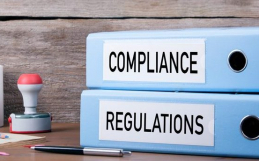The Building and Construction Industry Security of Payment Amendment Act 2018 (NSW) (Amending Act) came into force on 21 October 2019, making important changes to the Building and Construction Industry Security of Payment Act 1999 (NSW) (SOPA).
Broadly, these changes affect how payment claims are made and adjudicated in New South Wales and also increase the investigative and enforcement powers available to the State government with respect to the administration of SOPA. The amended provisions of SOPA apply to all construction contracts within the scope of SOPA that are entered into from 21 October 2019 onwards. This article explores some of the more significant changes that have been made by the Amending Act.
No ‘Reference Date’ for Payment Claims– Sections 8 and 13 of SOPA
Previously, a person undertaking construction work or supplying related goods or services under a construction contract (Claimant) was permitted under sections 8(1) and 13 of SOPA to lodge a payment claim for work done during a month on the ‘reference date’. The ‘reference date’ was either the date specified in the contract on which a claim for a progress payment could be made, or, if the contract made no provision for the date on which a claim for a progress payment could be made, then the last day of the month in which the work was done.
The Amending Act replaces the current section 8 of SOPA and inserts new sections 13(1A) to 13(1C), which remove the concept of the ‘reference date’ and provide that:
- a Claimant is entitled to make a payment claim for a progress payment;
- a payment claim may be made on and from the last day of the month in which work is done or goods or services are supplied. As this is not tied to when the contract states that a payment claim can be made, it will be easier for a Claimant to know when they can make a claim;
- if the contract provides an earlier date on which a payment claim can be made, the claim may be made on that earlier date; and
- if a contract is terminated, then a payment claim can be served on and from the termination date. This amendment addresses an issue that arose in the decision of Southern Han Breakfast Point Pty Ltd (In Liquidation) v Lewence Construction Pty Ltd & Ors [2016] HCA 52, where a contract included a specific monthly reference date and was purportedly terminated part way through a month after the last reference date. The High Court held in that case that, under the previous wording of SOPA, the contractor could not make a payment claim for work done after the last reference date and up to the termination date because a payment claim for this work could only be made on the next reference date, which was never reached.
Basis of Claim – Section 13(2)(c) of SOPA
The Amending Act amends section 13(2)(c) of SOPA by reintroducing a requirement that in order to be valid, a payment claim must expressly state that it is a payment claim made under SOPA.
Content of Claim – Sections 13(5) and 13(6) of SOPA
The Amending Act amends section 13(5) and 13(6) of SOPA in order to clarify what amounts can be included in a payment claim.
Previously, these sections stated that although a Claimant could not make more than one claim for each reference date, the Claimant was not prevented from including in a claim an amount that was the subject of a previous claim.
As amended, these sections provide a more specific description of the amounts that may be included. Following the amendment, a Claimant may only serve one claim per month, but they are not prevented from:
- serving a single payment claim for more than one month;
- including in a claim an amount that has been the subject of a previous claim; or
- serving a payment claim in one month for work carried out in the previous month.
Jurisdictional Error in Adjudications – Section 32A of SOPA
The Amending Act inserts a new section 32A into SOPA. This section permits the Supreme Court of NSW to set aside an adjudicator’s determination of a payment dispute under SOPA if the court finds that the determination was subject to jurisdictional error (which, in very general terms, occurs where the adjudicator has made a decision that is outside of the scope of their authority as an adjudicator). The Court may set aside the whole of the adjudicator’s determination or may identify which part of the determination is subject to jurisdictional error and set aside only that part.
Claims and Adjudication prevented by Liquidation – Section 32B of SOPA
The Amending Act inserts a new section 32B into SOPA. This new section prevents a company that goes into liquidation from serving or seeking to enforce a payment claim under SOPA. This section also provides that, if a company makes an application for adjudication of a payment dispute under SOPA and the company subsequently goes into liquidation, the application is deemed to be withdrawn.
Investigation and Enforcement Powers – Part 3A of SOPA
The Amending Act deletes clauses 36 to 36B of SOPA, and inserts a new Part 3A, which introduces a broader and more comprehensive range of investigation and enforcement powers that can be exercised by ‘authorised officers’ for an ‘authorised purpose’. ‘Authorised officers’ are persons specifically appointed as such by the secretary of the Department of Finance, Services and Innovation, and investigators appointed under section 18 of the Fair Trading Act 1987 (NSW). The ‘authorised purposes’ are investigating, monitoring and enforcing compliance with the requirements of SOPA, obtaining information or records connected with the administration of SOPA, or otherwise administering or executing SOPA.
An authorised officer can, amongst other things, require the production of information and records, enter premises at any reasonable time (with or without a search warrant), and do anything on premises that in the opinion of the authorised officer is reasonably necessary to be done for an authorised purpose, including examining and copying records, and seizing anything that they reasonably believe is connected with an offence against SOPA.
Sections 32O, 32P and 32Q of the new Part 3 of SOPA introduce offences for:
- failing to comply with the requirement of an authorised officer without reasonable excuse;
- providing information, records or answers knowing that they are false or misleading in a material respect; and
- delaying, hindering or obstructing an authorised officer without reasonable excuse.
Accessorial and Executive Liability Offences – Sections 34C and 34D of SOPA
The Amending Act inserts the new sections 34C and 34D into SOPA, which allow individuals, in certain circumstances, to be held personally liable for an offence under SOPA that is committed by a company.
Under section 32C, a person commits an offence if a company commits an offence under SOPA and:
- the person is a director of the company or is involved in the company’s management and is in a position to influence the company’s conduct in relation to the offence; and
- the person has aided, abetted, counselled, procured or induced the commission of the offence, has conspired with others to effect the commission of the offence, or has in any other way been knowingly concerned in the commission of the offence.
Under section 32D, a person commits an offence if a company commits an ‘executive liability offence’ and the person:
- is a director of the company or is involved in the company’s management and is in a position to influence the company’s conduct in relation to the offence;
- knows that the offence would or is being committed or is recklessly indifferent as to whether or not it would be or is being committed; and
- fails to take all reasonable steps to prevent or stop the commission of the offence.
The ‘executive liability’ offences are limited to:
- the offences in sections 13(7) and 13(8) of SOPA, which relate to a head contractor making a payment claim to a principal either without providing a supporting statement or together with a false or misleading supporting statement; and
- the offences in section 12A of SOPA that are specified in section 5A of the Regulation, which relate to a head contractor’s obligations to deal with retention amounts as trust money.
Looking Forward
All participants in the building and construction industry will need to ensure that their procedures for generating, making and dealing with payment claims for any contracts entered into on or after 21 October 2019 are updated to meet the new requirements of SOPA.
Similarly, as the previous SOPA requirements will continue to apply to any contracts entered into before 21 October 2019, participants will need to be ready to manage the differing payment claim requirements that will apply until all of their contracts entered into before 21 October 2019 have been finalised.
At Bryks Lawyers, we have extensive experience in constructions law and in navigating the parties’ rights and obligations with respect to payment. Contact us today to see how we can assist you!







